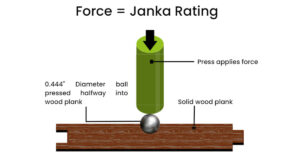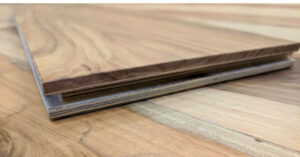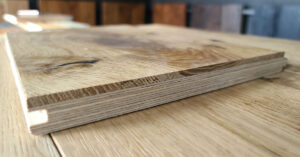What is a Janka Rating for hardwood flooring?
Posted: March 4, 2024Updated 6/27/2025
Author – Ryan Palma Owner/CEO Sustainable Lumber Co.
Click on this link for more information, photo’s, and pricing on our wide selection of hardwood flooring, or to contact us for a pricing quote.
What is the Janka Rating?
 The Janka rating is a wood floor hardness scale. It is part of a test that measures the hardness of a wood species used for hardwood flooring. It is named after Gabriel Janka, an Austrian wood researcher who developed the test. The Janka test involves measuring the force required to embed a 0.444-inch steel ball into a wood sample to half of its diameter. The test is conducted on both the long grain and the cross grain of the wood.
The Janka rating is a wood floor hardness scale. It is part of a test that measures the hardness of a wood species used for hardwood flooring. It is named after Gabriel Janka, an Austrian wood researcher who developed the test. The Janka test involves measuring the force required to embed a 0.444-inch steel ball into a wood sample to half of its diameter. The test is conducted on both the long grain and the cross grain of the wood.
The Janka rating is expressed in pounds-force (IBF) or newtons (N). The higher the Janka rating, the harder the wood. This wood floor hardness scale is crucial in assessing a wood species’ ability to withstand wear, denting, and overall durability in flooring applications.
 For example, a wood species with a higher Janka rating might be more suitable for high-traffic areas, as it is less likely to dent or scratch. On the other hand, a lower Janka rating may indicate that the wood is softer and may be more prone to wear and tear.
For example, a wood species with a higher Janka rating might be more suitable for high-traffic areas, as it is less likely to dent or scratch. On the other hand, a lower Janka rating may indicate that the wood is softer and may be more prone to wear and tear.
Check out the Janka wood hardness rating of popular native species used for flooring in the U.S.
- Hickory – 1820
- Maple – 1450
- White Oak – 1360
- Ash – 1320
- Red Oak – 1290
- Walnut – 1010
- Cherry – 950
- Douglas Fir – 720
- Ponderosa Pine – 460

Our knowledgeable and educated staff is here to answer any additional questions you may have. Please call us today for a free quote on our sustainable wood flooring: Ph# 406.642.7120 or click here to submit an inquiry online. We look forward to working with you on your next project!

